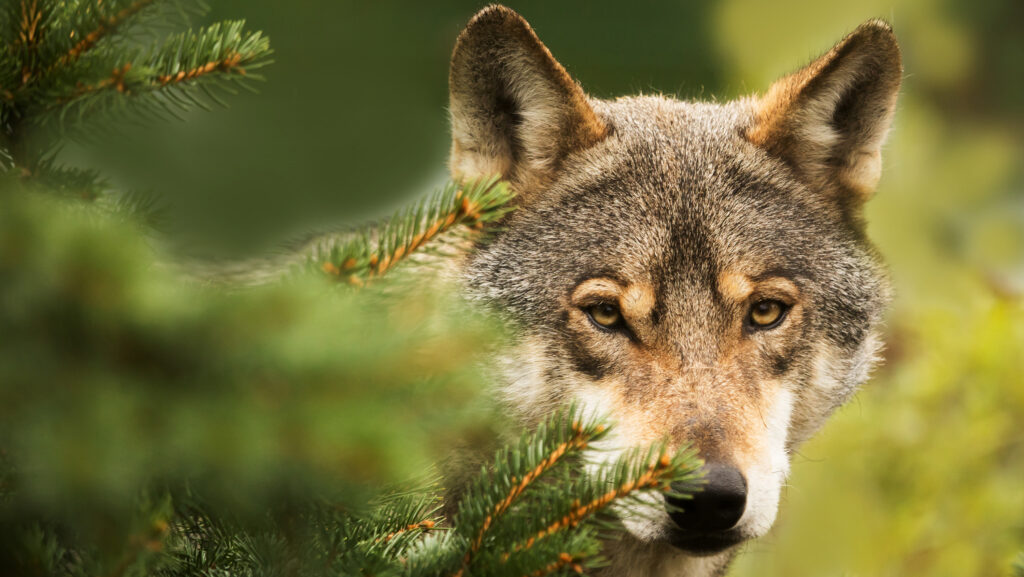Reintroducing wolves can counter climate change, claims study
 © Adobe Stock
© Adobe Stock A study by Leeds University claims that reintroducing wolves into four areas of Scotland could help fight climate change.
Researchers say the growing red deer population is responsible for a decline in tree saplings, which is suppressing natural regeneration of trees and woodland.
See also: Recent illegal lynx release is ‘reckless’ says NFUS
Introducing 167 wolves across the Cairngorms, South-west Highlands, Central Highlands and North-west Highlands would reduce the red deer population enough to allow trees to regenerate, it says.
The researchers estimate that each wolf would lead to an annual uptake capability of 6,080t of carbon dioxide, making each wolf “worth” £154,000.
By controlling red deer with wolves, the scientists claim the native woodland area would expand enough to sequester 1m tonnes of carbon dioxide each year, equivalent to 5% of the carbon removal target for UK woodlands.
The study’s lead author, Prof Dominick Spracklen, said: “We need to look at the potential role of natural processes such as the reintroduction of species to recover our degraded ecosystems, and these in turn can deliver co-benefits for climate and nature recovery.”
Deer management
Wolves were eradicated from Scotland about 250 years ago, leaving red deer with no natural predators.
Despite ongoing management, red deer numbers in Scotland have significantly increased over the past century, with the latest estimates putting the total as high as 400,000.
While intensive deer management in some locations has aided tree regeneration, Scotland is said to have the lowest levels of native woodland in Europe, covering only 4% of the country.
The wolf population in western Europe now exceeds 12,000 and they occupy 67% of their former European historical range, including the Netherlands.
However, the prospect of wolf reintroductions in Scotland has drawn sharp criticism from farmer representatives, who fear their sheep flocks would become an easy target.
NFU Scotland president Andrew Connon said: “Any proposals to reintroduce predators such as lynx, wolves or bears are wholly unacceptable to Scottish farmers and crofters.
“That is why we wholeheartedly welcomed the categorical reassurance given by Scotland’s first minister John Swinney, when he addressed our annual conference on 7 February, that the reintroduction of lynx, or any other carnivorous species such as wolves, would not take place under his government.”
Scottish Land & Estates is also concerned about such proposals.
“Fragile farming businesses producing food would come under economic pressure to protect their livestock in an already difficult financial climate,” a spokesman said.
The researchers recognise that livestock farmers and deer stalkers might be opposed to such moves, but stress that the financial benefits associated with carbon uptake and storage would be in addition to other economic and ecological benefits, including ecotourism and a reduction in deer-related road traffic accidents.
